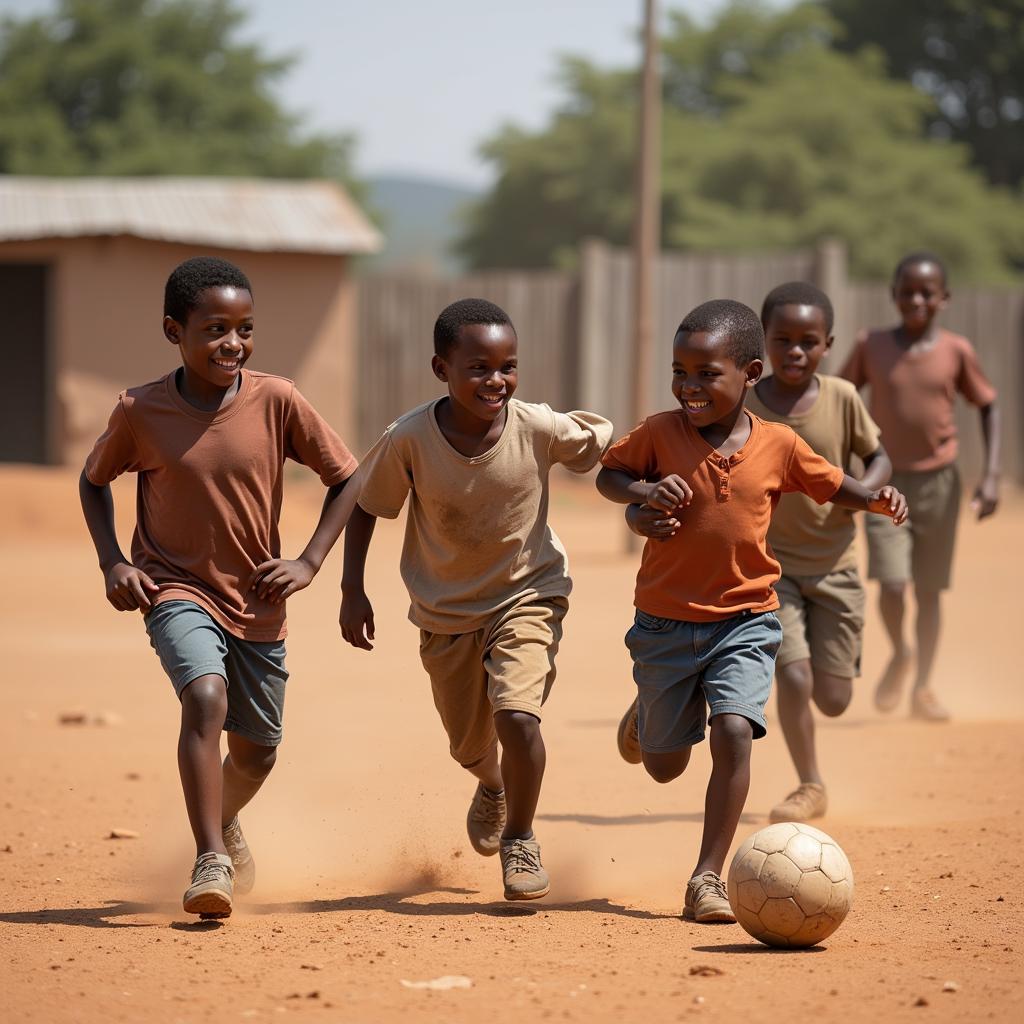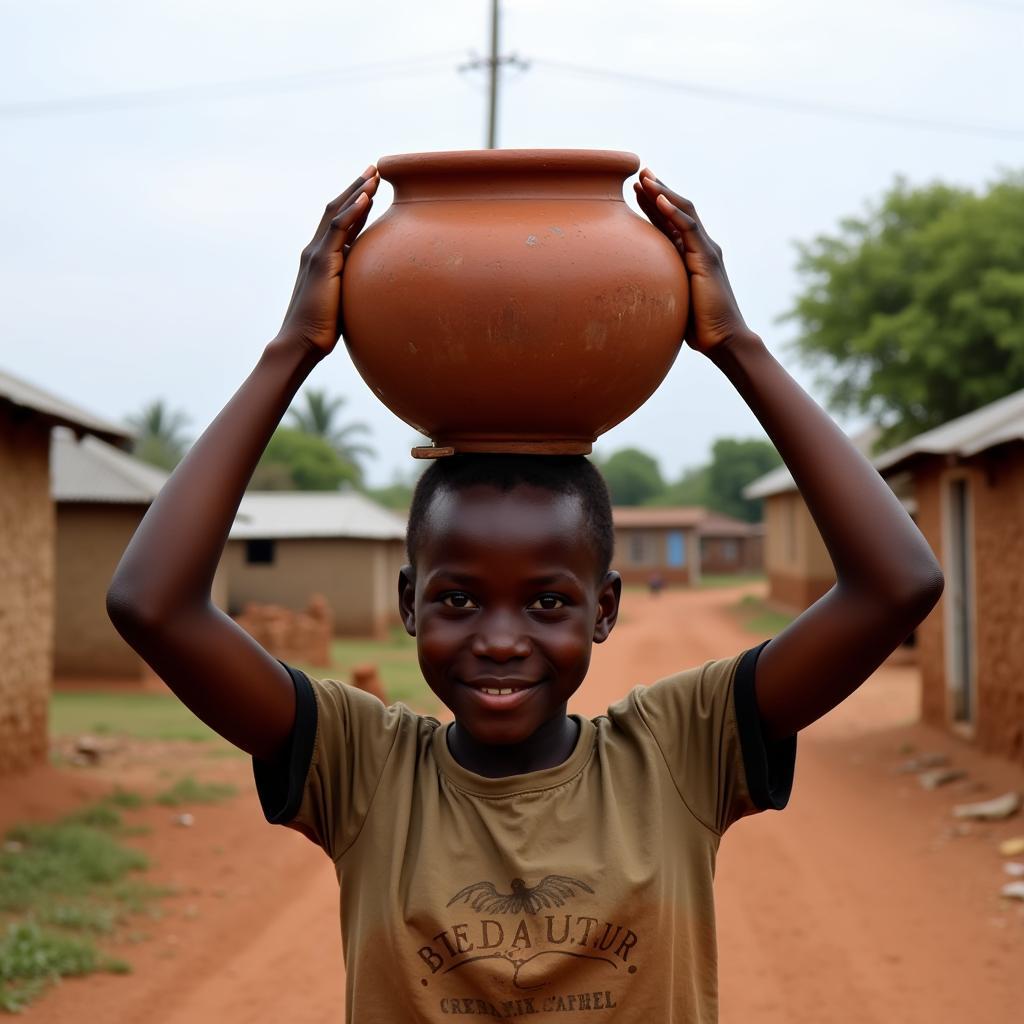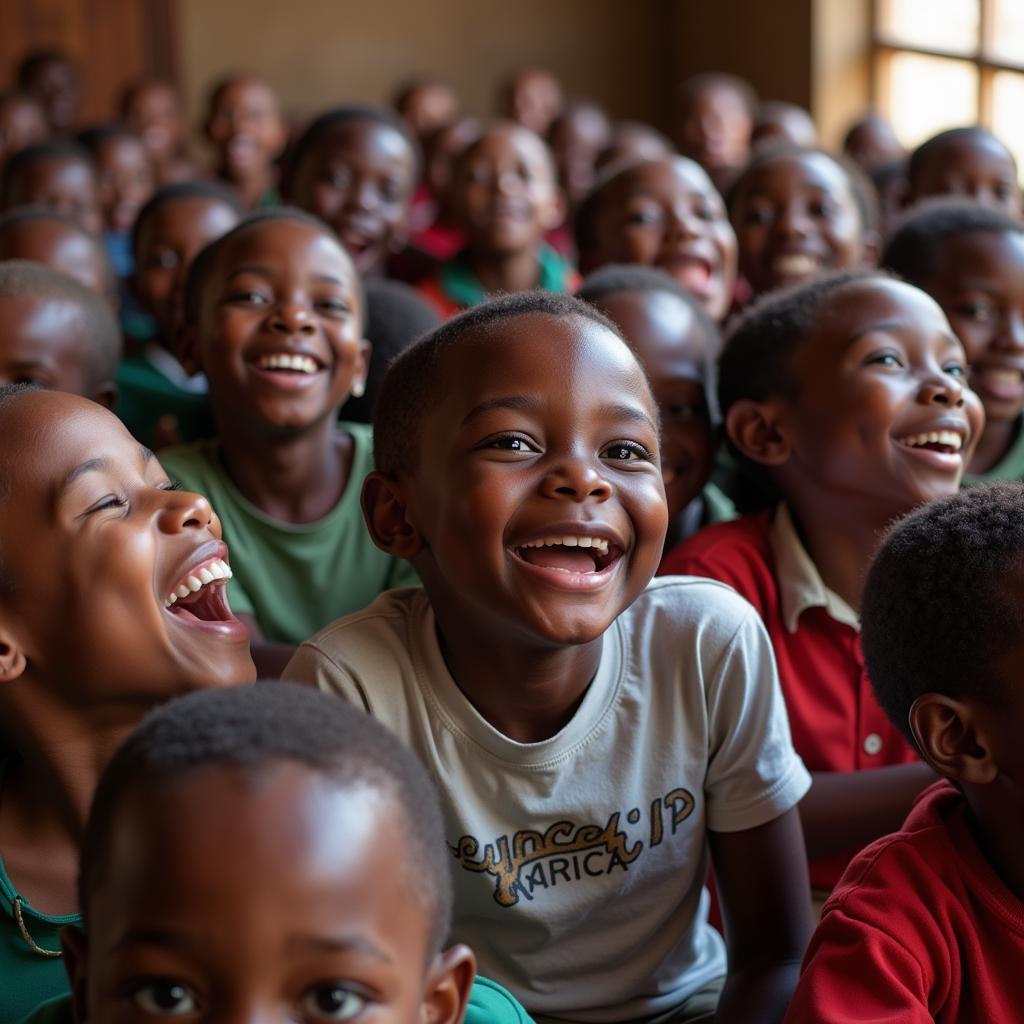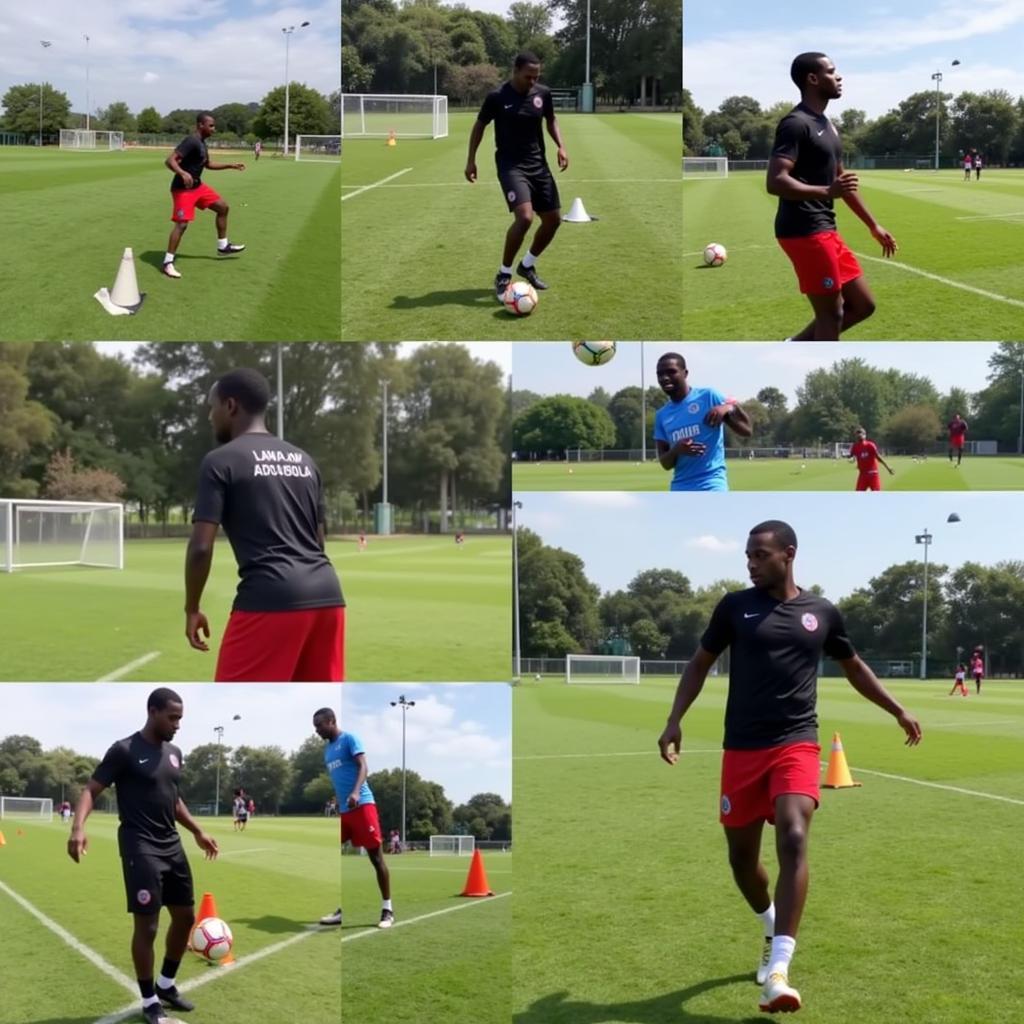African Child Images: A Window into Resilience, Joy, and Hope
African Child Images offer a captivating glimpse into the diverse lives and experiences of children across the continent. These images go beyond mere snapshots, revealing the resilience, joy, and hope that define childhood in Africa. From the bustling markets of Marrakech to the serene landscapes of the Serengeti, African child images capture the essence of childhood against the backdrop of a vibrant and ever-evolving continent.
The Power of Images: Telling Stories of African Children
 African children playing soccer in the dust
African children playing soccer in the dust
Images have a unique ability to transcend language barriers, conveying emotions and stories that words sometimes cannot. African child images, in particular, have the power to challenge stereotypes and provide a more nuanced understanding of childhood on the continent. They showcase the diversity of experiences, from the challenges faced to the triumphs celebrated.
Beyond the Single Story: Celebrating Diversity in African Child Images
It’s crucial to recognize that Africa is not a monolith but a continent of 54 countries, each with its own unique cultures, languages, and traditions. African child images should reflect this diversity, showcasing the richness and complexity of life across the continent.
For instance, an image of a child attending a modern school in Accra tells a different story than that of a nomadic child herding cattle in the plains of Chad. Both images are equally valid and important in painting a complete picture of African childhood.
The Importance of Ethical Photography
 African girl carrying water in village
African girl carrying water in village
When capturing and sharing images of African children, it’s paramount to prioritize ethical considerations. Obtaining consent, respecting privacy, and ensuring the child’s dignity should be at the forefront of any photographic endeavor. The goal should be to empower and celebrate, not exploit or objectify.
Here are some key ethical guidelines:
- Obtain informed consent: Always seek permission from the child and their parent or guardian before taking and sharing their photograph.
- Protect children’s privacy: Avoid sharing identifying information, such as their full names or locations, that could put them at risk.
- Focus on respect and dignity: Portray children in a respectful and dignified manner, avoiding stereotypical or sensationalized depictions.
From Portraits to Playtime: Capturing the Spectrum of Childhood
 African children laughing in a classroom
African children laughing in a classroom
African child images should encompass the full spectrum of childhood experiences, from the mundane to the extraordinary. Images of children engaged in everyday activities, such as playing, learning, and interacting with their families and communities, are just as valuable as those depicting cultural ceremonies or significant events.
Looking Ahead: Hope and Opportunity in African Child Images
While challenges undoubtedly exist, African child images should ultimately convey a message of hope and opportunity. They should highlight the resilience of communities, the transformative power of education, and the unwavering spirit of young people who are shaping the future of the continent. By showcasing both the beauty and the potential that lie within each child, these images can inspire action, understanding, and support.
Conclusion
African child images provide a powerful lens through which to view the continent—its diversity, its challenges, and most importantly, its immense potential. By embracing ethical photography and celebrating the richness of African childhood in all its forms, we can help create a more nuanced and accurate narrative about Africa and its people. Let these images serve as a reminder of the shared humanity that connects us all and the importance of investing in a brighter future for every child.
FAQs
What are some ethical considerations when taking photos of African children?
Always prioritize consent, privacy, and the child’s dignity. Obtain permission from the child and their guardian, avoid sharing identifying information, and focus on respectful and non-exploitative depictions.
How can I support organizations working to improve the lives of African children?
Numerous reputable organizations focus on education, healthcare, and child protection in Africa. Research and contribute to those aligning with your values.
Are there resources available to learn more about African culture and childhood experiences?
Yes, many books, documentaries, and online resources offer insights into the diverse cultures and experiences of children across Africa.
What is the best way to share African child images respectfully?
Use them to promote understanding, challenge stereotypes, and support ethical initiatives. Always credit photographers and obtain permission before sharing.
For further information and assistance, please contact us:
Phone Number: +255768904061
Email: kaka.mag@gmail.com
Address: Mbarali DC Mawindi, Kangaga, Tanzania.
Our dedicated customer support team is available 24/7 to address your inquiries.

